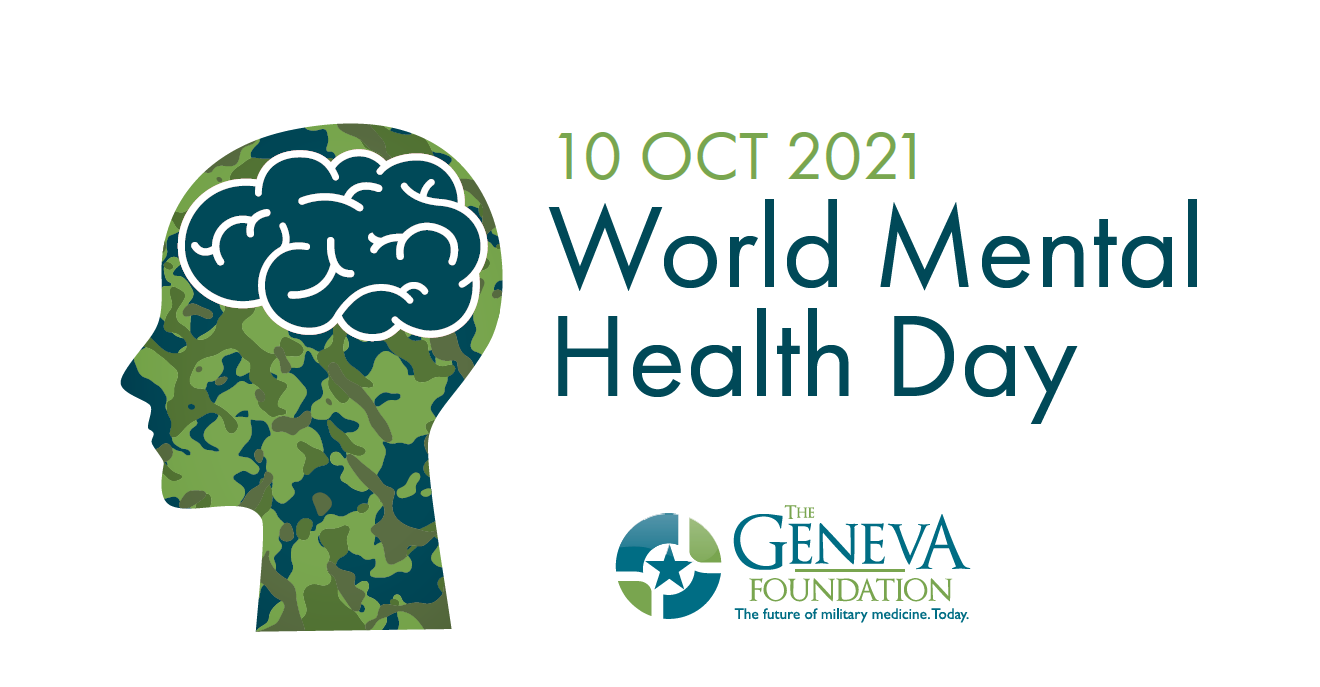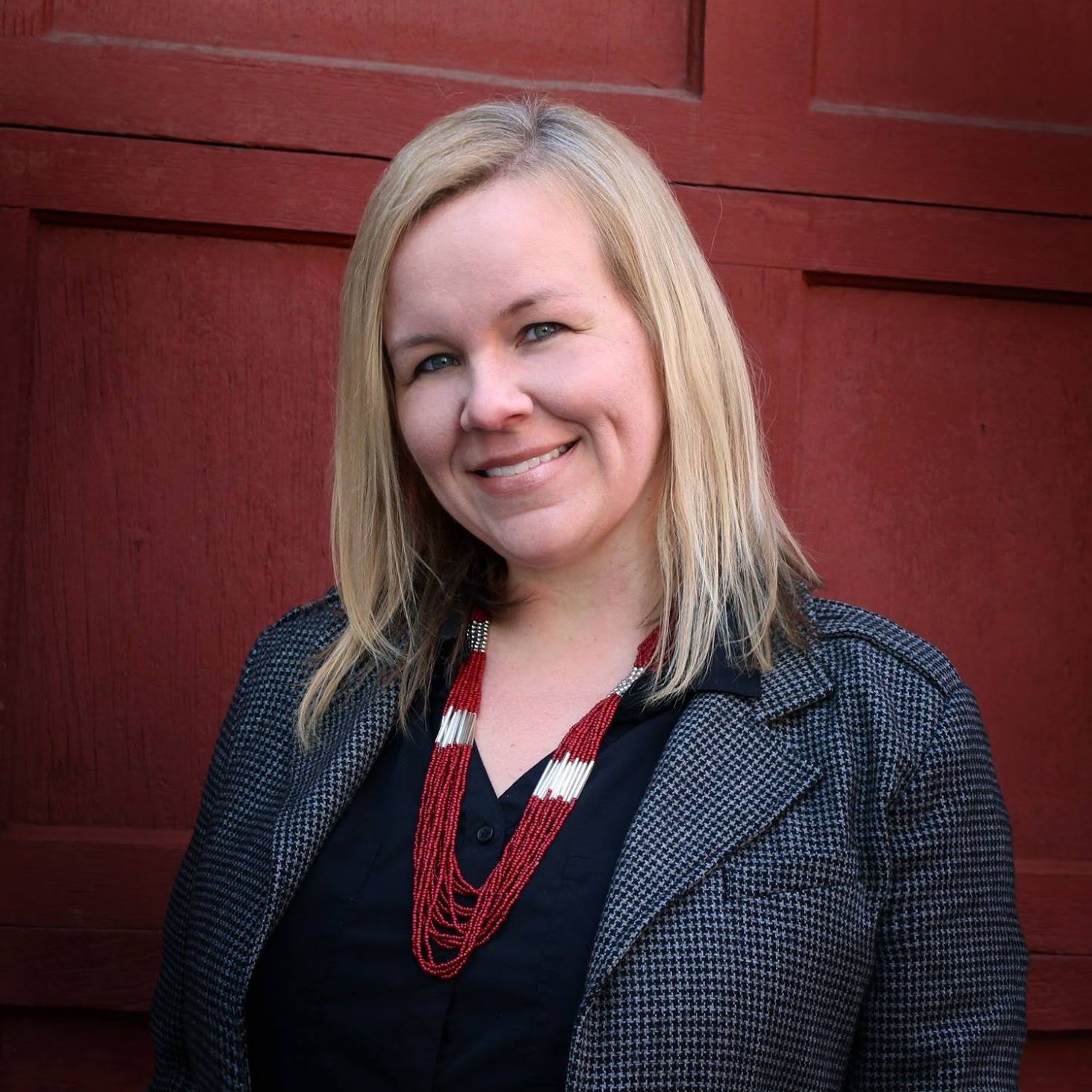7 October 2021
10 #MilMed Researchers Making an Impact in Mental Health Care
World Mental Health Day is 10 October 2021
World Mental Health Day comes at a time when the devastation of the COVID-19 pandemic has already had a marked effect on people’s mental health. The demand for mental health services has increased and researchers worldwide are investigating the causes and impacts that COVID-19 has had on mental health. This is in addition to the myriad of mental health issues already facing our U.S. service members, veterans and their families, and the general public.
According to the World Health Organization, World Mental Health Day provides an opportunity for people working on mental health issues to talk about their efforts, and what more needs to be done to make mental health care a priority for people worldwide.
Here are 10 military medical researchers who are working with Geneva to make an impact in the research, design, and delivery of mental health care. Geneva is proud to advance this critical research and increase the understanding of these complex healthcare issues.
COL Carla Dickinson, PhD, USA
Wounded, ill, and injured service members are more likely to require intensive or long-term care, often requiring family members to become their primary caregivers. While there is research on the impact that caregiving has on civilian and formal military caregivers, little is known regarding the short- and long-term effects experienced by family caregivers of service members. COL (Dr.) Dickinson is studying military family caregivers with the goal of gathering meaningful data for the development of suicide prevention programs. Read more
Col Jacqueline Killian, RN, PhD, USAF
Nurse Scientist Dr. Jacqueline Killian is studying the transition period (including mental health stressors) of newly-educated military nurse practitioners (NP) as they develop proficiency in two roles simultaneously – that of a NP and military officer. The goal of this research is to provide evidence to support a transition program that improves performance, reduces voluntary turnover, and protects patient safety. Read more
Christopher Hines, MD
Dr. Christopher Hines conducted clinical trials using repetitive transcranial magnetic stimulation (TMS) as an effective acute treatment for patients psychiatrically admitted in suicidal crisis as well as other patients at high risk for suicide. TMS therapy, approved by the U.S. Food & Drug Administration in 2008, provides an electromagnetic pulse to a targeted region within the brain that scientists believe is responsible for causing depression. His data confirms a course of standard TMS therapy in active-duty service members with major depression is a promising treatment for reducing depressive symptoms. Read more
James Meyerhoff, MD
Geneva Principal Investigator Dr. James Meyerhoff and his team aim to better predict early signs of the comorbidities inherent in Post Traumatic Stress Disorder (PTSD), such as anger management, and sleep disorders, so that readily available treatments can be implemented to prevent full PTSD. Using a systems biology approach, the team is examining gender-specific biomarkers to improve clinical assessment for PTSD in female soldiers. Read more
MAJ (Ret.) Daniel Rhon, DPT, DSC, USA
Mental health disorders are associated with persistent knee pain, but until recently, the association between these two had little investigation in the military. Geneva Research Scientist Dr. Dan Rhon and his colleagues found that “Mental health disorders are common in military service members seeking care for patellofemoral pain. Differences in prevalence vary by sex, and presence of mental health disorders adversely affected long-term health care outcomes.” Read more
Tamar Rodney, PhD, MSN, RN
Geneva-Jonas Scholar Dr. Tamar Rodney spent a significant part of her nursing career working in the trauma unit, where she was exposed to the long-term impact of traumatic brain injury (TBI). In 2016, she was awarded the first Geneva-Jonas Scholarship, which helped fund her research in evaluating biomarkers for TBI in veterans. Most recently, Dr. Rodney authored a paper on loneliness in older adults during the COVID-19 pandemic to understand the effects that social isolation has on mental health. Read more
LCDR J. Kent Werner, MD, PhD, USN
Restorative deep sleep may help the brain and body repair, heal, and grow – but it is difficult for both civilian and military populations to obtain this level of sleep. Moreover, sleep disorders affect over half of mild traumatic brain injury (mTBI) patients, which is a concern for the Department of Defense. LCDR (Dr.) Kent Werner proposes using novel technology to track brain fluid movements during sleep – to enhance the quality and depth of sleep. Read more
Maj. Melissa Wilson, PhD, APRN, USAF
Maj (Dr.) Melissa Wilson is pioneering military moral injury healthcare research focused on the trauma facing healthcare providers. Moral injury has been traditionally used in the context of a warfighter, and moral distress has been applied to the healthcare provider. However, military critical care nurses simultaneously experience both and the outcomes may manifest with symptoms similar to PTSD, anxiety, and depression. The persistence of these symptoms over time can result in compromised care to our warfighters as well as a decreased ability to care for oneself. Read more
CAPT Abigail Marter Yablonsky, PhD, USN
CAPT (Dr.) Abigail Marter Yablonsky aims to understand how deployment stress can affect mothers’ and fathers’ parenting stress in different ways. Her research goal is to develop innovative and targeted behavioral interventions to promote healthy parenting in military families dealing with the unique stressors of deployment. CAPT (Dr.) Yablonsky recently began a follow-up study with Geneva to conduct a family analysis of parenting stress post-COVID-19. Read more
Ruoting Yang, PhD
PTSD impacts many veterans and soldiers, but diagnosis can be problematic. PTSD has been a major priority of the Department of Defense to identify objective biological markers to aid and increase diagnostic and prognostic accuracy. Geneva Scientist Dr. Ruoting Yang is part of a world-renowned network of scientists called the PTSD Systems Biology Consortium who identified biotypes for PTSD, the first of their kind of any psychological disorder. Read more
To learn more about how Geneva advances brain health research, please visit our website or contact us at bd@genevaUSA.org.
Disclaimer: The views expressed do not reflect the official policy of the Army, Air Force, Navy, Department of Defense, or the U.S. Government.

Geneva is proud to advance critical mental health research and increase the understanding of these complex healthcare issues.
HIGHLIGHTS
- World Mental Health Day provides an opportunity for people working on mental health issues to talk about their efforts, and what more needs to be done to make mental health care a priority for people worldwide.
- Here are ten military medical researchers in several different areas of mental health who are working with Geneva to make an impact in the research, design, and delivery of mental health care.
- To learn more about how Geneva advances brain health research, please visit genevaUSA.org/brain-health or contact us at bd@genevaUSA.org.


